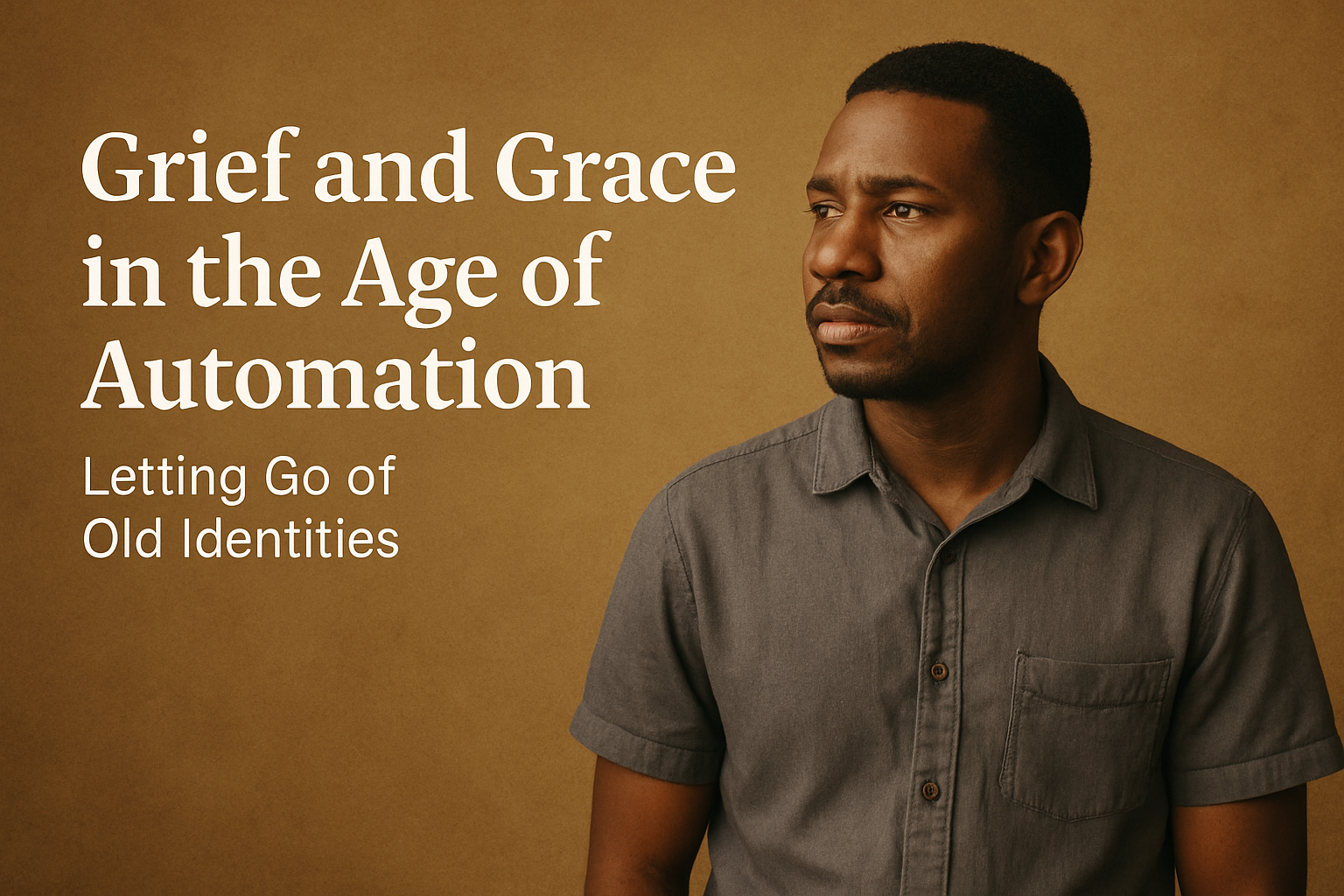In the olden days, when a man was a farmer, he woke up each morning, took his hoe, and went to his farm. He knew who he was. He was proud. His hands may have been rough, but his heart was at peace. A woman who weaved cloth or sold akara at the market stood with dignity. She was known, respected, and useful.
But today, the wind is blowing in a new direction.
Computers now do the counting. Machines do the digging. Robots speak to customers. Even the person writing this is not fully human — I am using AI tools to bring these words to life.
So, what happens to the man who was proud of his typing speed when ChatGPT can write ten letters in one minute? What about the woman who taught children how to draw, now replaced by AI that paints like Picasso? Where do we go, and who are we, when the things that gave us identity no longer matter?
That is where the grief starts.
The Hidden Pain of Change
Many people are walking around with heavy hearts, but they don’t know why. They still smile, go to church, attend weddings, and greet neighbors. But something deep inside them is crying.
The carpenter looks at the furniture factory run by robots and wonders, “Am I still needed?”
The teacher sees online courses taught by AI and asks, “Will anyone still pay for my knowledge?”
This is not just about losing jobs. It is about losing self. It is about saying goodbye to what once made us feel important. And my people, grief is not only when someone dies — it is also when a part of you disappears.
Grace: The Power to Let Go and Grow
But as the old ones say, “When the rain falls, it does not fall on one man’s roof alone.” The age of automation is touching everyone — from Lagos to London, from Aba to Atlanta.
Yet, inside this confusion, there is something called grace — that quiet strength that helps you stand again after the ground has shifted.
Grace says:
“Yes, your old job is gone, but your value is not.”
“Yes, your title has changed, but your purpose has not.”
“Yes, you are grieving, but you are also growing.”
Look at Mama Ifeoma. She used to sell hand-sewn clothes. When factory fashion came, she cried. But then, her granddaughter taught her to sell on WhatsApp. She now sends beautiful dresses across the country without leaving her home.
Grace is not about going back to the past. It is about finding new meaning in the present.
What You Can Do Now
Let us not just talk grammar. Let us act. Here are small steps anyone can take:
- Grieve properly – Talk to someone. Write in a diary. Pray. Mourn what you have lost. It is not weakness; it is wisdom.
- Learn something new – You don’t need a university degree. Many free courses online teach simple digital skills. Ask a younger person to help you get started.
- Reconnect with your purpose – Ask yourself, “What problem can I still solve?” You may no longer be a typist, but can you help others organize their work? You may not sell in the market, but can you sell online?
- Build a new community – Find others going through the same thing. Talk. Share ideas. Grow together. Don’t suffer alone.
In Conclusion
Our people say, “When the drumbeat changes, the dancer must also change steps.” The age of automation is a new drumbeat. It is fast. It is loud. But it does not mean we must disappear.
We can grieve the past and still embrace the future. We can let go of old identities and wear new names with pride. In our grief, let us find grace — and in that grace, let us rise again.
Let this be our prayer:
Not just to survive automation, but to shine in it.


